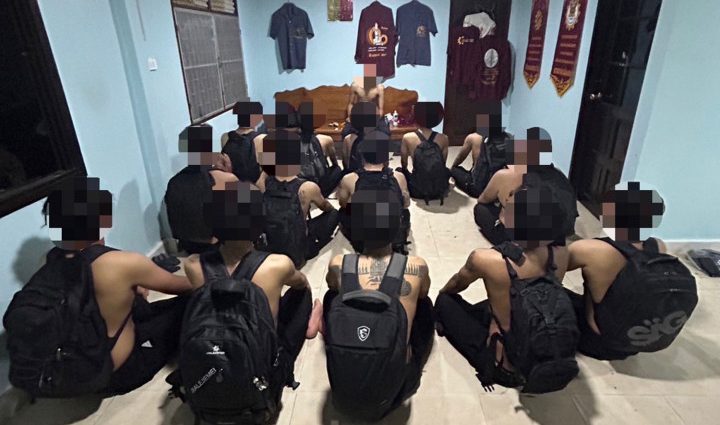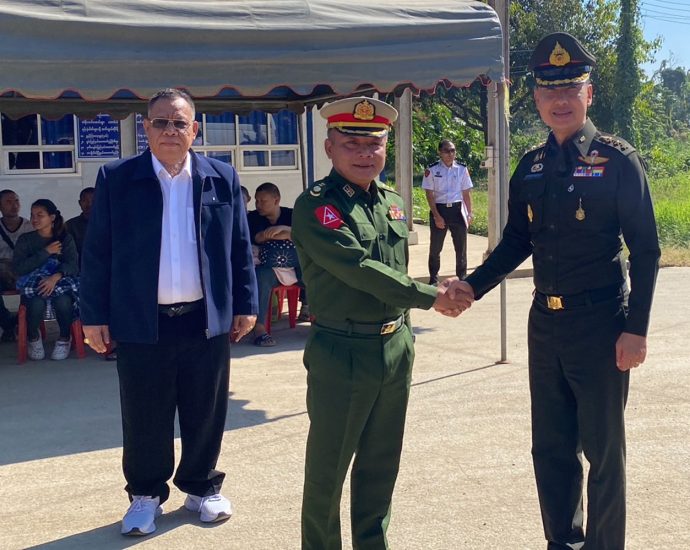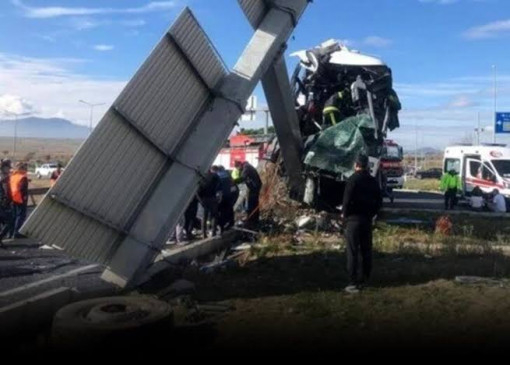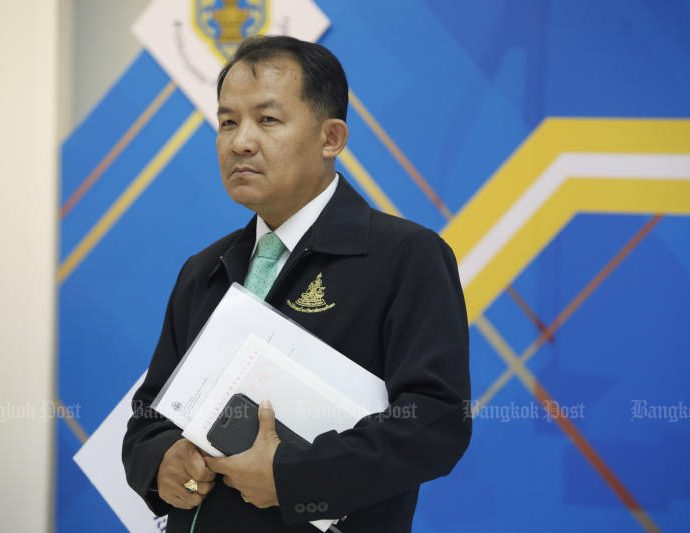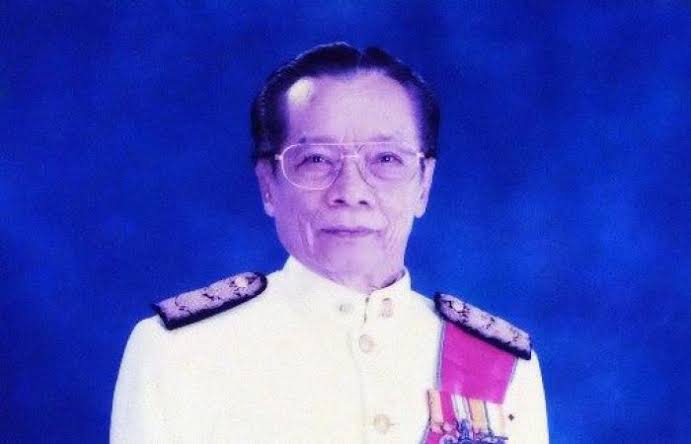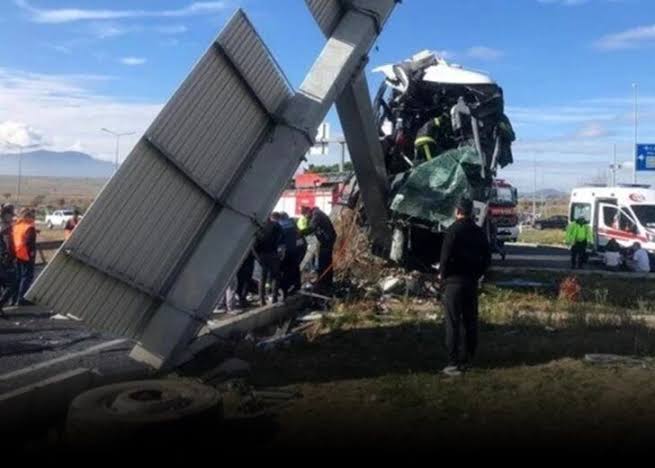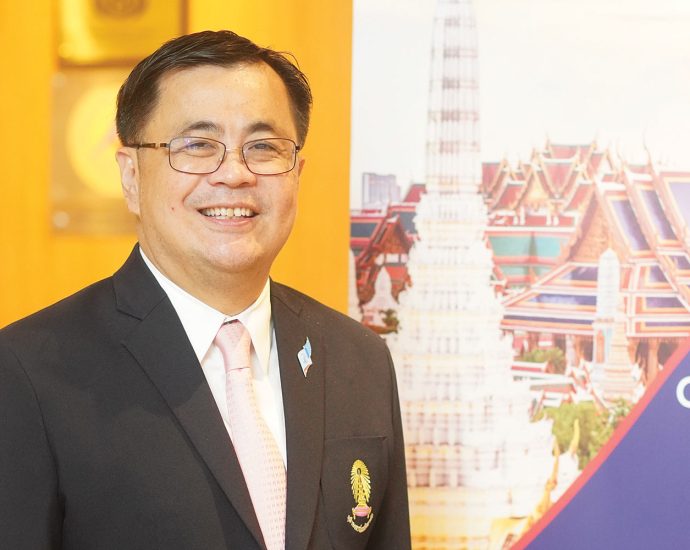Police still hunting shooter in Klong Toey teacher, student killings

Police are still hunting for the shooter and his partner who killed a teacher and a technical college student in Klong Toey after finding evidence that they are part of a crime network using revenge as its mission.
Pol Col Wittawat Chinkham, commander of Metropolitan Police Division 5, visited Thung Maha Mek Police Station on Friday morning to interrogate four of all eight suspects of the fatal shooting which had killed a student and teacher in Bangkok’s Klong Toey on Nov 11.
Photos of a gear symbol scarred on some of the suspects’ shoulders by branding iron have circulated the internet, indicating that one gear symbolises one successful mission.
The four suspects reportedly have gear scars. One of them has four gear scars on his upper left arm.
Pol Col Wittawat revealed that all eight suspects had firmly denied the allegations during their 48-hour detention. Even though some of them had disclosed important details, they still insisted that they were blameless for the deaths of two victims.
Sirada Sinprasert, a 45-year-old teacher queuing up to use a bank’s ATM on Sunthon Kosa Road. Sirada, who taught at the school, died at the scene, while Thanasorn Hongsawat, 19, the target, was severely wounded and died later in hospital.
Police have investigated the background of gear scars but the information has yet to be revealed due to the case confidentiality. Also, the branding iron used to stamp the gear symbol has not been found, said Pol Col Wittawat.
Meanwhile, Pol Maj Gen Theeradej Thamsuthee, head of the MPB’s Investigation Division, pointed out that the gear scar symbolises an undeniable criminal pattern among the suspects and their network.

One of the suspects has gears branded on his arm to show his affiliation with the gang. A higher number of gears indicates a higher rank within the group. (Photo supplied/Wassayos Ngamkham)
Apart from the arrested nine suspects, police are tracking down the shooter, the bike rider and the mastermind. All three have been issued arrest warrants and are expected to be found soon.
A collection of photos of a student gang in a safe house in Soi Wongsawang 19 in Bang Sue area is believed to be a base of the criminal gang where seniors trained their subordinates to attack students from rival schools.
In the background, workshop jackets of their institution are hung on the wall.
Reports said that the two-storey house has been rented by the students for three months, who mostly come to the house at night, according to neighbours.
About 20-30 students usually gathered in the house but the neighbours reported no nuisance. However, they claimed that they had occasionally heard chanting from the students.
A neighbour said that the students had sometimes drunk and smoked weed on the second floor. He also confirmed the chanting in the late hours.
To respond to the emerging criminal acts by the vocational students, Pol Maj Gen Charin Kopatta, deputy commissioner of the MPB, met with chiefs of 14 police stations in risky areas in Bangkok and executives of three vocational institutions on Friday to find solutions for the issue.
They have considered reintroducing the “Min Buri Model” where officers and school executives offer voluntary work to the students and activities between police and the students to prevent deadly clashes.

